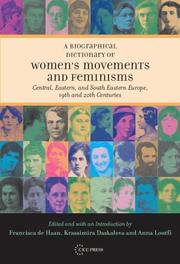| Listing 1 - 4 of 4 |
Sort by
|
Book
ISBN: 3631398905 9783631398906 Year: 2003 Publisher: Frankfurt am Main Lang
Abstract | Keywords | Export | Availability | Bookmark
 Loading...
Loading...Choose an application
- Reference Manager
- EndNote
- RefWorks (Direct export to RefWorks)
Students, Foreign --- Immigrants --- Higher education and state --- Etudiants étrangers --- Enseignement supérieur --- History --- Congresses --- Education (Higher) --- Histoire --- Congrès --- Politique gouvernementale --- Students, Russian --- 378.4 <4> --- -Immigrants --- -Students, Foreign --- -Students, Russian --- -Foreign students --- International students --- Overseas students --- Students, International --- Visitors, Foreign --- Foreign students' spouses --- Foreign study --- Emigrants --- Foreign-born population --- Foreign population --- Foreigners --- Migrants --- Persons --- Aliens --- Education, Higher --- State and higher education --- Education and state --- Universiteiten--Europa --- -Education (Higher) --- -History --- Government policy --- Russian students --- -Universiteiten--Europa --- 378.4 <4> Universiteiten--Europa --- Etudiants étrangers --- Enseignement supérieur --- Congrès --- Foreign students --- Students --- Congresses. --- Students, Foreign - Germany - History --- Higher education and state - Europe --- Students, Russian - Germany - History --- Students, Foreign - Europe - History --- Immigrants - Education (Higher) - Europe --- Immigrants - Education (Higher) - Germany
Book
Year: 2005 Publisher: Genève Hurter
Abstract | Keywords | Export | Availability | Bookmark
 Loading...
Loading...Choose an application
- Reference Manager
- EndNote
- RefWorks (Direct export to RefWorks)
Book

ISBN: 272971071X 2729706798 Year: 2018 Publisher: Lyon : Presses universitaires de Lyon,
Abstract | Keywords | Export | Availability | Bookmark
 Loading...
Loading...Choose an application
- Reference Manager
- EndNote
- RefWorks (Direct export to RefWorks)
Les recherches sur les inégalités de sexe à l'école, que ce soit en Psychologie, en Sociologie ou en Sciences de l'éducation, sont maintenant bien connues. Mais il importe de continuer la réflexion, en particulier en intégrant la variable de la mixité sociale et culturelle, peu prise en compte jusqu'à présent et qui change considérablement les données de la mixité sexuelle, et de se demander quelles stratégies mettre en œuvre au niveau de la formation tant initiale que continue des enseignants. Ce numéro a été élaboré en collaboration avec l'IUFM de Lyon.
Sociology --- Women's Studies --- enseignement --- éducation --- école --- enseignant --- sexe --- féminisme --- inégalité --- mixité sociale --- étude des genres


ISBN: 9786155053726 9786155053726 9786155053726 6155053723 1423749383 9781423749387 9637326391 9789637326394 9637326405 9789637326400 Year: 2022 Publisher: Budapest New York
Abstract | Keywords | Export | Availability | Bookmark
 Loading...
Loading...Choose an application
- Reference Manager
- EndNote
- RefWorks (Direct export to RefWorks)
This Biographical Dictionary describes the lives, works and aspirations of more than 150 women and men who were active in, or part of, women’s movements and feminisms in Central, Eastern and South Eastern Europe. Thus, it challenges the widely held belief that there was no historical feminism in this part of Europe. These innovative and often moving biographical portraits not only show that feminists existed here, but also that they were widespread and diverse, and included Romanian princesses, Serbian philosophers and peasants, Latvian and Slovakian novelists, Albanian teachers, Hungarian Christian social workers and activists of the Catholic women’s movement, Austrian factory workers, Bulgarian feminist scientists and socialist feminists, Russian radicals, philanthropists, militant suffragists and Bolshevik activists, prominent writers and philosophers of the Ottoman era, as well as Turkish republican leftist political activists and nationalists, internationally recognized Greek feminist leaders, Estonian pharmacologists and science historians, Slovenian ‘literary feminists,’ Czech avant-garde painters, Ukrainian feminist scholars, Polish and Czech Senate Members, and many more. Their stories together constitute a rich tapestry of feminist activity and redress a serious imbalance in the historiography of women’s movements and feminisms.
| Listing 1 - 4 of 4 |
Sort by
|

 Search
Search Feedback
Feedback About UniCat
About UniCat  Help
Help News
News